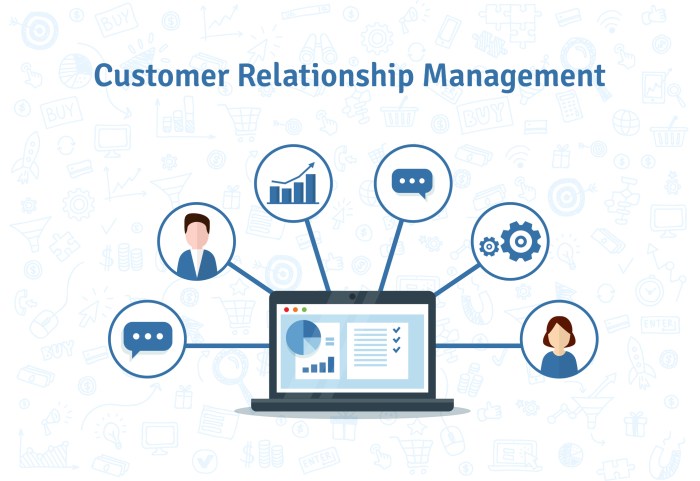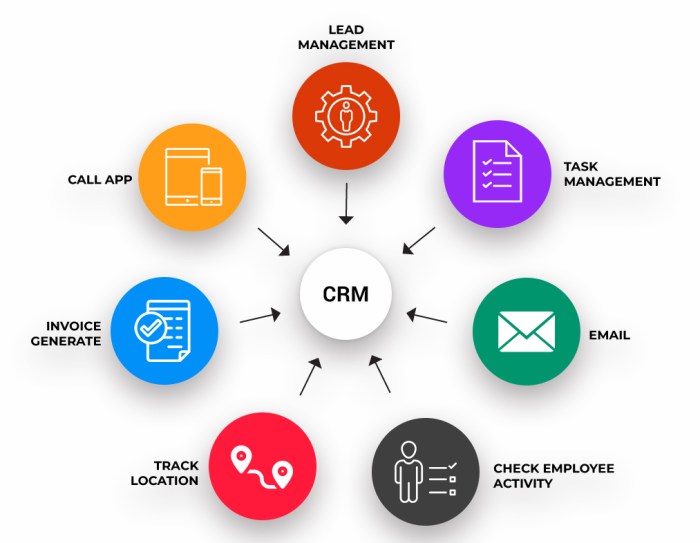What is CRM?
In today’s competitive business landscape, building strong customer relationships is crucial for success. This is where CRM, or Customer Relationship Management, comes into play. CRM is a strategic approach that empowers businesses to manage and optimize their interactions with customers across all touchpoints.
By centralizing customer data, automating processes, and providing insights into customer behavior, CRM systems enable businesses to deliver personalized experiences, foster loyalty, and ultimately drive growth.
Definition of CRM
At its core, CRM is about understanding and nurturing customer relationships. It’s a comprehensive strategy that encompasses all aspects of customer interaction, from initial contact to ongoing engagement. CRM aims to enhance customer satisfaction, improve operational efficiency, and drive revenue growth by leveraging data-driven insights and automated processes.
A concise definition of CRM is: A system or strategy for managing a company’s interactions with current and potential customers.
For instance, consider a retail company that uses CRM to track customer purchases, preferences, and interactions. By analyzing this data, the company can send personalized product recommendations, targeted promotions, and timely reminders, enhancing the customer experience and driving repeat purchases.
Key Features of CRM Systems

CRM systems are software applications designed to facilitate customer relationship management. They offer a wide range of features that enable businesses to effectively manage customer interactions, streamline processes, and gain valuable insights.
- Contact Management:Centralize and organize customer information, including contact details, purchase history, communication logs, and preferences.
- Sales Automation:Automate sales tasks, such as lead generation, opportunity tracking, and pipeline management, to improve efficiency and increase sales productivity.
- Marketing Automation:Personalize marketing campaigns, segment customer lists, and automate email marketing, social media interactions, and other marketing activities.
- Customer Support:Track customer inquiries, manage support tickets, and provide prompt and efficient assistance through various channels, such as email, phone, and live chat.
- Reporting and Analytics:Generate insightful reports and dashboards to track key performance indicators (KPIs), analyze customer behavior, and identify areas for improvement.
These features collectively empower businesses to understand their customers better, personalize interactions, and optimize their customer journey. By leveraging CRM systems, businesses can build stronger relationships, increase customer satisfaction, and achieve sustainable growth.
Types of CRM Systems

CRM systems are categorized based on their target audience and functionalities. Each type offers unique advantages and disadvantages, making them suitable for different business needs.
| Type | Key Features | Target Audience |
|---|---|---|
| Operational CRM | Automate sales, marketing, and customer service processes | Businesses focused on streamlining operations and improving efficiency |
| Analytical CRM | Collect and analyze customer data to gain insights and make data-driven decisions | Businesses seeking to understand customer behavior and preferences |
| Collaborative CRM | Enable collaboration and communication among internal teams to provide a unified customer experience | Businesses with a focus on customer-centricity and teamwork |
Choosing the right type of CRM system depends on the specific needs and goals of the business. It’s crucial to consider factors such as industry, business size, and desired functionalities when selecting a CRM solution.
Benefits of Implementing CRM
Implementing a CRM system can bring numerous benefits to businesses, ranging from improved customer satisfaction to enhanced operational efficiency and increased revenue.
- Enhanced Customer Satisfaction:CRM systems enable businesses to provide personalized experiences, respond to customer inquiries promptly, and resolve issues efficiently, leading to higher customer satisfaction and loyalty.
- Improved Operational Efficiency:CRM automates repetitive tasks, streamlines workflows, and centralizes customer data, freeing up time for employees to focus on higher-value activities and improving overall operational efficiency.
- Increased Revenue Growth:By fostering stronger customer relationships, driving repeat purchases, and enabling targeted marketing campaigns, CRM can significantly contribute to revenue growth.
- Data-Driven Insights:CRM systems provide valuable insights into customer behavior, preferences, and purchasing patterns, enabling businesses to make informed decisions and optimize their strategies.
- Improved Sales Productivity:CRM tools automate sales tasks, track leads, and provide sales performance metrics, empowering sales teams to be more efficient and productive.
By leveraging the benefits of CRM, businesses can gain a competitive edge, build lasting customer relationships, and achieve sustainable success.
CRM Implementation Process

Implementing a CRM system effectively requires a well-defined process and careful consideration of various factors. The implementation process typically involves several key steps:
- Needs Assessment:Identify the specific business needs and goals that the CRM system should address.
- Solution Selection:Research and evaluate different CRM solutions to find the best fit for the business requirements.
- Data Migration:Transfer existing customer data from legacy systems to the new CRM platform.
- System Configuration:Customize the CRM system to match the business processes and workflows.
- User Training:Provide comprehensive training to employees on how to use the CRM system effectively.
- System Launch and Ongoing Support:Launch the CRM system and provide ongoing support to users, including troubleshooting and system updates.
Successful CRM implementation requires careful planning, collaboration among stakeholders, and ongoing optimization to ensure the system delivers maximum value.
CRM Best Practices

Maximizing the effectiveness of a CRM system requires adhering to best practices that ensure optimal data management, user engagement, and system optimization.
- Data Quality and Management:Maintain accurate and up-to-date customer data, implement data cleansing procedures, and ensure data security.
- User Adoption and Training:Provide comprehensive training to users, encourage active engagement, and gather feedback to improve user experience.
- System Optimization:Continuously monitor system performance, identify areas for improvement, and make necessary adjustments to enhance efficiency and effectiveness.
- Integration with Other Systems:Integrate the CRM system with other business applications, such as marketing automation platforms, e-commerce platforms, and accounting software, to create a seamless workflow.
- Focus on Customer Experience:Use CRM data to personalize customer interactions, provide excellent support, and build strong relationships.
By following these best practices, businesses can ensure their CRM system is a valuable asset that drives customer satisfaction, improves operational efficiency, and contributes to long-term growth.